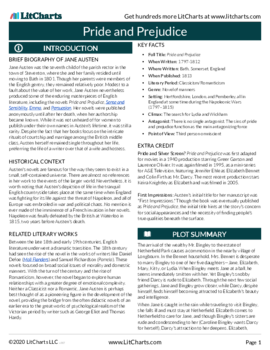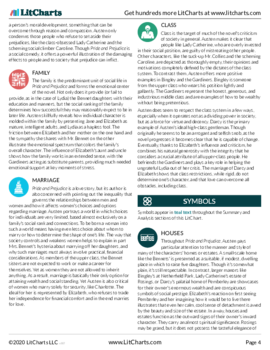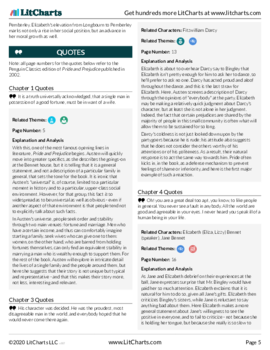- All's Well That Ends Well
- Antony and Cleopatra
- As You Like It
- The Comedy of Errors
- Coriolanus
- Cymbeline
- Hamlet
- Henry IV, Part 1
- Henry IV, Part 2
- Henry V
- Henry VI, Part 1
- Henry VI, Part 2
- Henry VI, Part 3
- Henry VIII
- Julius Caesar
- King John
- King Lear
- Love's Labor's Lost
- A Lover's Complaint
- Macbeth
- Measure for Measure
- The Merchant of Venice
- The Merry Wives of Windsor
- A Midsummer Night's Dream
- Much Ado About Nothing
- Othello
- Pericles
- The Rape of Lucrece
- Richard II
- Richard III
- Romeo and Juliet
- Shakespeare's Sonnets
- The Taming of the Shrew
- The Tempest
- Timon of Athens
- Titus Andronicus
- Troilus and Cressida
- Twelfth Night
- The Two Gentlemen of Verona
- Venus and Adonis
- The Winter's Tale
plus so much more...
-
Lines 1-2
The speaker begins by using the first-person plural pronoun, saying, "We shall not always plant while others reap." Considering that the poem is about how Black people will someday overcome racism and oppression, the speaker's use of "we" is notable because it establishes that the speaker is Black.
Of course, the speaker never explicitly states that this poem is about Black oppression, but the opening two lines make this element clear enough since the speaker alludes to the institution of slavery by referencing the act of planting. The main kind of forced labor during slavery was agricultural, meaning that most enslaved people were forced to work in fields—fields that belonged to white enslavers who then "reap[ed]" the benefits of this labor.
This first line also alludes to a proverb found in the Bible, which says that "whatsoever a man soweth, that shall he also reap." This phrase has worked its way into popular usage, though the wording is usually changed to something like, "You reap what you sow." It essentially emphasizes the idea that hard work leads to positive outcomes, since the act of sowing—which means planting—is what creates harvestable crops.
However, the poem turns this phrase on its head by spotlighting the ways in which Black Americans have been unable actually "reap" what they sow. Indeed, the speaker's point is that Black Americans have historically been cut off from enjoying the fruits of their labor. To that end, the oppression of Black people has created a situation in which powerful white people are the ones to benefit from the hard work of Black people.
Despite this, the speaker is confident that this will not always be the case. In fact, the poem begins with the speaker's assertion that Black people will "not always" be mistreated in this way. In keeping with this, the speaker is confident that Black people will one day be able to enjoy "the golden increment of bursting fruit," which is the speaker's way of saying that Black people will someday actually benefit from the precious growth of the plants they themselves have worked so hard to tend.
It's worth noting that the consonance in these first two lines is very euphonic, since there are so many pleasing, rounded or humming sounds, like /l/, /th/, /z/, /n/, /m/, and /r/:
We shall not always plant while others reap
The golden increment of bursting fruitThis euphony gives the opening lines a pleasant, lush sound that ultimately matches the speaker's highly poetic tone. In keeping with this poetic tone, these lines also establish the sonnet's adherence to iambic pentameter, meaning that each line contains five iambs (metrical feet made up of an unstressed syllable followed by a stressed syllable, da-DUM). The lines scan like this:
We shall | not al- | ways plant | while oth- | ers reap
The gold- | en in- | crement | of burst- | ing fruitThese lines are good examples of iambic pentameter, but it's worth mentioning that some readers might hear a stress on the word "not" in line 1, turning the line's second foot ("not al-") into a spondee, meaning that both syllables are stressed. If this is the case, then the speaker ultimately ends up emphasizing the idea that Black people won't live in oppression forever.

|
PDF downloads of all 3054 of our lit guides, poetry guides, Shakescleare translations, and literary terms.
PDF downloads of all 1911 LitCharts literature guides, and of every new one we publish.
Learn more
|

|
Explanations for every quote we cover.
Detailed quotes explanations (and citation info) for every important quote on the site.
Learn more
|

|
Instant PDF downloads of 136 literary devices and terms.
Definitions and examples for 136 literary devices and terms. Instant PDF downloads.
Learn more
|

|
Compare and contrast related themes.
Compare and contrast Related Themes across different books.
Learn more
|

|
Teacher Editions for all 1911 titles we cover.
LitCharts Teacher Editions for every title we cover.
Learn more
|

|
PDFs of modern translations of every Shakespeare play and poem.
PDFs of modern translations of every Shakespeare play and poem.
Learn more
|

|
Advanced search across our collection.
Advanced Search. Find themes, quotes, symbols, and characters across our collection.
Learn more
|

|
Line-by-line explanations, plus analysis of poetic devices for lyric poems we cover.
Line-by-line explanations, plus analysis of poetic devices for every lyric poem we cover.
Learn more
|


For every lyric poem we cover.



Literature Guide PDFs
LitCharts PDFs for every book you'll read this year.



Quotes Explanations
For all 42,282 quotes we cover.





Teacher Editions
Time saved for teachers.
For every book we cover.
Common Core-aligned



PDFs of modern translations of every one of Shakespeare's 37 plays, 154 sonnets, and 3 longer poems.


Plus a quick-reference PDF with concise definitions of all 136 terms in one place.






















